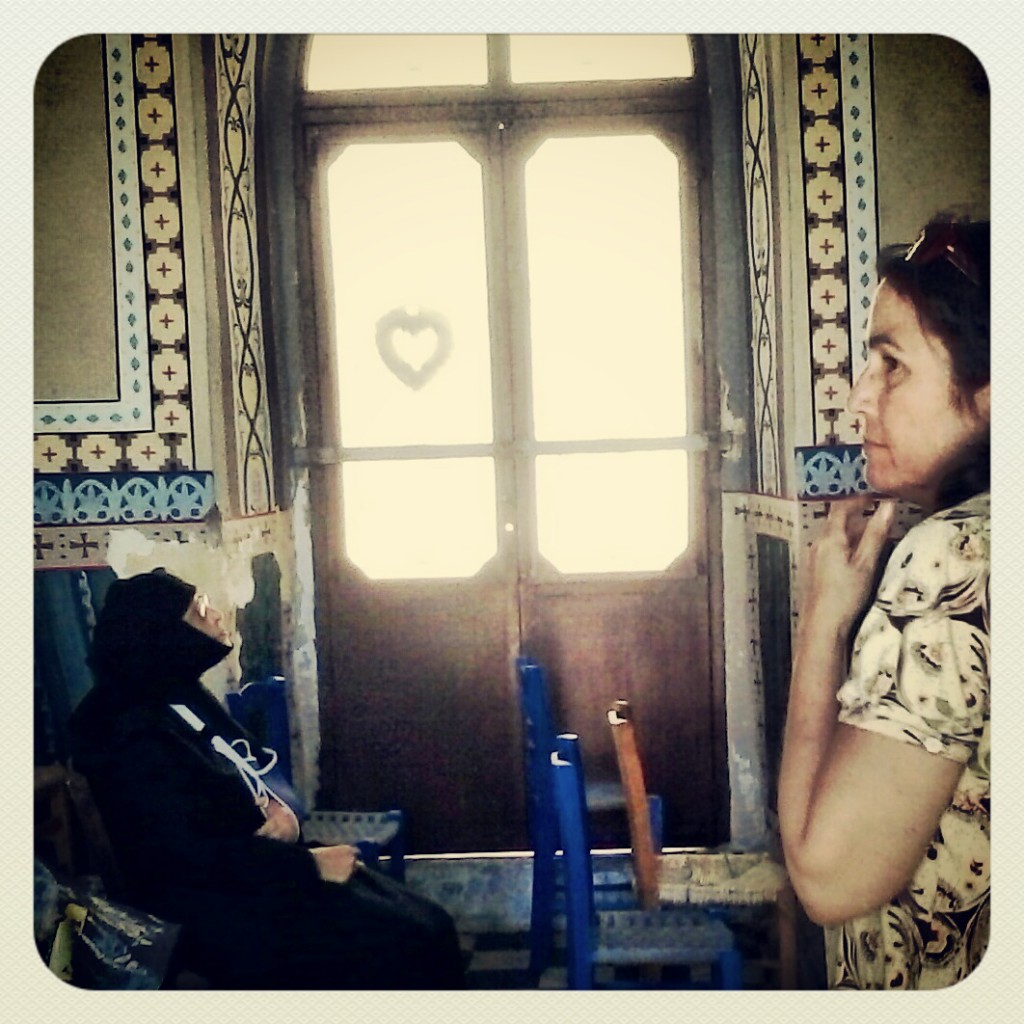Here’s a little treat for those of you waiting patiently for “Mana” to be screened at a movie theater near you: our first review! Premier film website Flix.gr attended the opening at the recent Thessaloniki Documentary Festival and envoy Manolis Kranakis delivered an insightful review that gave us goosebumps. Here it is, translated into English, gor your eyes only!
Mother knows best!
Valerie Kontakos documents a handful of nuns with a difference, in a non-fiction manifesto about alternative families.
In 1962, a group of young women made headlines in Greece by running away to join a convent. Each time they were captured and sent back to their families, but they kept trying until they finally succeeded. Uninterested in praying all day, they started a shelter, providing a family for abandoned and abused children. Half a century later, the surviving founders are still running the Lyrio Children’s Village without help from church or state, raising infants without a wedding band. This film tells the story of their vision and how they’ve changed the lives of more than 500 hundred children’s so far – simply by taking their fate into their own hands.
The story of these rebellious girls, who managed to make their not-so-obvious dream come true, is by nature cinematic, especially if you take into consideration that most runaways who ended up in convents back in the 60s were forced to take refuge in religion and didn’t exactly do it by choice. But what’s really interesting about infiltrating the Lyrio Children’s Village in Mati, on the eastern coast of Attica, is that the leading ladies of this slice-of-life documentary are by definition what movie dreams are made of. Valerie Kontakos documents their every move without hiding her admiration, not just for staying true to their vision for more than 50 years but, most importantly, for their conviction that their god-given mission derives less from religious dogma and more from their own dedication to children, intricately entwined with their rebellious act of independence that essentially cut them off from Church and State.
The fragments of their everyday lives are disarming, unexpected, affectionate and funny and, as they penetrate the true essence of their work, you realize you’ve stopped watching an informative documentary about convent life or any sort of institution. Instead, you’ve opened your mind to an alternative family, the kind society tends to shun, unsuccessfully testing the limits of its so-called tolerance. Positive that documenting their days at the Lyrio Children’s Village is much more powerful than any talking head ever would be, Kontakos maintains a discreet approach towards their affectionate relationship, watching kids of every conceivable age call the nuns “Mana” (Greek for mum), in direct contrast to the assumption that there’s only one woman who can play this role in a child’s life. In a truly delightful wedding dress rehearsal scene, we come face-to-cafe with the inevitable turning point in every mother’s life, when her offspring – much like the nuns themselves – eventually decides to venture out into the real world.
It’s impossible not to feel goosebumps when one of the nuns gazes upon the children with the certainty that she’s much more of a mother than many other women ever could be. It’s equally impossible not to get carried way by the touching light-heartedness of their everyday lives at the Children’s Village, when in fact every single person there – even the nuns themselves – are nothing but lost children, who will one day discover the true meaning of the world family. And director Valerie Kontakos vindicates their vision with the same melancholy smile.
“Mana” by Valerie Kontakos screened as part of the official selection of the Thessaloniki Documentary Festival, March 13-22 2015.


